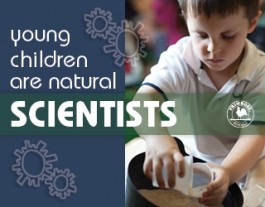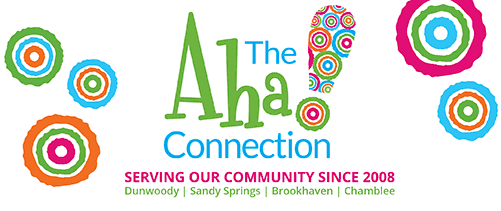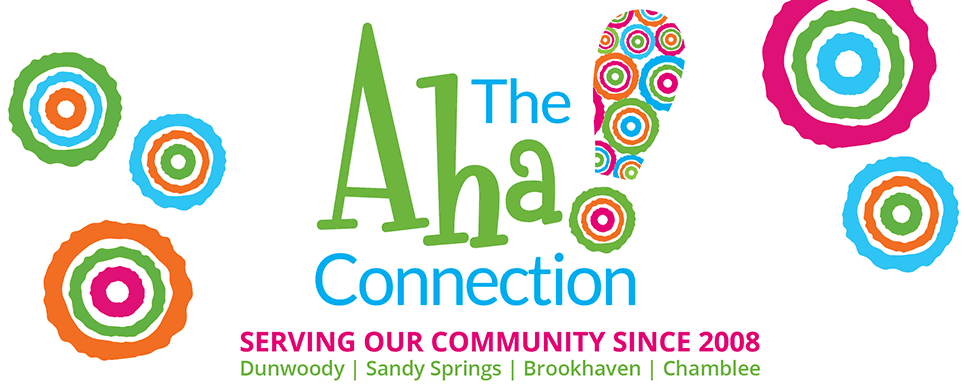 The first three years of a child’s life are consumed by a desire to explore and experiment with objects. The well-known developmental psychologist, Jean Piaget, called young children “natural scientists,” a fitting term given their natural inclination to explore the world around them to understand how it works. The better parents, care givers and early educators understand these tendencies, the more proactive they can be in providing safe environments in which children can explore, experiment and learn without interference.
The first three years of a child’s life are consumed by a desire to explore and experiment with objects. The well-known developmental psychologist, Jean Piaget, called young children “natural scientists,” a fitting term given their natural inclination to explore the world around them to understand how it works. The better parents, care givers and early educators understand these tendencies, the more proactive they can be in providing safe environments in which children can explore, experiment and learn without interference.
From the moment babies enter the world, their curiosity sparks a need to observe and classify objects and actions. Their brains actually change as a result of the new things they learn and as they continue to grow and explore, new discoveries help children enrich, modify, reorganize – and sometimes replace – their initial theories with quite different ideas. This type of hands-on learning explains why a child may scrutinize a new object in an effort to figure out how it works or experiment with sound and movement as he learns how to use his body to communicate.
“We know children need safe environments where they can experiment freely and take risks without the fear of being told, ‘That’s not how you’re supposed to do that,’” says Gloria Julius, Ed. D., vice president of education and professional development at Primrose Schools. “When we support a child’s natural tendencies to try things out, we are cheering them on to discover and tackle new challenges. By acknowledging their efforts, we help them build determination and confidence in their own abilities.”
Dr. Julius recommends these fun and safe activities to encourage children to explore and investigate in their world:
• Give your newborn colorful objects to examine by looking, feeling, tasting and smelling.
• Talk to your baby, providing a play-by-play of everything he does. Researchers believe that this commentary helps babies organize and understand the world around them.
• Fill a large, shallow bowl with water and provide your baby with simple scooping tools for endless exploration and fun. You can do this in the bathtub as well.
• Fill a large bowl or shallow tub with dry beans, rice or sand. Your infant or toddler will enjoy sifting this material through her fingers, picking it up and pouring it out. Be sure to keep a close eye on your little one to make sure she doesn’t try to eat any of it.
• Make “cloud dough” with flour and cooking oil (8 parts flour: 1 part oil). It feels powdery like flour one moment and then moldable like damp sand the next. It’s easy to make and the unique texture will amuse your child to no end. (For gluten-free cloud dough, replace the flour with rice flour.)
The crib, the playroom, the bathtub and the backyard are all excellent laboratories for young children. Encouraging children to use their natural tendency to learn, through play and exploration, provides them with the opportunity to investigate topics that interest them in more depth and will help them develop into well-rounded, creative learners. By providing a supportive and fun environment, parents, caregivers and early educators can help children explore and deepen their conceptual understanding of the world around them, which is critical to early childhood development.
Primrose Schools is a national family of accredited, early education and care schools serving children, parents and local communities with a purposeful, balanced approach to nurturing Active Minds, Healthy Bodies and Happy Hearts®. To learn about Primrose School of Dunwoody, stop by our school campus at 5050 Nandina Lane in Dunwoody, visit www.PrimroseDunwoody.com or call 770.396.8266. For more parenting tips, visit our 360 Parenting blog at www.PrimroseSchools.com/360Parenting.
# # #
Contact:
Barbara Newsome
(770)396-8266
office@primrosedunwoody.com













